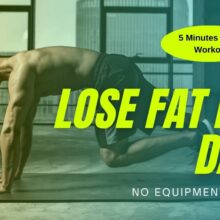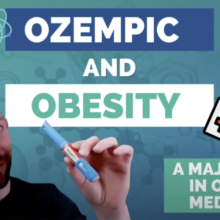What’s So Funny About Brexit? with Danny Dorling (2019)
Good afternoon, thank you so much for coming. Let’s see if we can do an hour on Brexit without getting cross. (laughter) If we can’t do it here then we can’t do it anywhere! I often think that anyone tired of Brexit is tired of life… (laughter) It’s exciting! Do you remember how boring it used to be, you know, when we knew what was going to happen and it was the same old thing, or you could alter it slightly, two political parties would vie at an election with slightly different manifestos, you know, one would win, everything carried on much the same?
Whereas now, none of you know. None of you know what is going to happen next month the month after, or the month after. I don’t know either. So in anticipation of questions – I’m sure you are going to want to ask me, “what will happen Danny?”
But Brexit is brilliant in that it’s humbling for academics. No – no academic predicted it. None. And that is quite remarkable. Quite a lot of people want to say they did, after the event, it’s just that they didn’t write it down anywhere! (laughter) So, it’s humbling. Why didn’t we predict it? Because we got too arrogant I think.
We thought we’d got quite good at predicting things, well, not us, not the actual academics We cheated. What we started to do was used spread betting. Spread betting works when you put your money down and say “I think we are going to leave on the 31st of October” and the bookies alter the odds depending on how much money people put down. And the spread betting, particularly in the US, but also in the UK, had become more and more accurate. People are quite good at predicting when they are putting their cash down and the spread betting said that Remain was going to win by two or three percent. And so we all comfortably thought they would. Now in hindsight, had Remain won by two or three percent we would have almost certainly still been in chaos because in hindsight, quite clearly we now know, what we didn’t know was that a group of people, really, really wanted to leave.
Enough to vote in 52 percent of those who voted but behind the 52 percent who voted Leave was a very determined group of men largely men, some with quite a lot of money, and they saw this as a long-term project. Why do I think they saw it as a long-term project? Because they were shocked. If you remember the day of the referendum Michael Gove and Boris Johnson stood there, and the look on their faces, they hadn’t expected to win. Their plans, I think, and here I’m guessing a lot of the things I’m going to say are guesswork, (I’ll show you some facts is there a bar graph on the screen? I’m not going to rely on you being able to see what’s on the screen so don’t worry if you can’t see it it’s a comfort blanket for me, or just trying to convince you I’m not trying to make all this up) Boris ummed and ahhed.
He famously wrote two editorials one in favor of Remain and one in favor of Leave and then in the Telegraph, he published one in favor of Leave. Boris, I think, and you may disagree with me was very very very interested in himself. (laughter and clapping) And he was trying to work out what stance he should take to maximize the chance of him achieving what he always wanted to achieve, which was to beat his mate Dave. Dave and Boris were at university together. Dave was slightly better at socializing and going out, Dave was cool and trendy, Dave went up Cowley Road Dave occasionally inhaled (it doesn’t say what he inhaled, a bit like Boris says he thought it was icing sugar) (laughter) And they competed for attention in Oxford. But when they left, Boris was angry because Dave was given a First Class degree and Boris was given a 2:1 And ever since then, he’s been trying to get his own back! Anyway, they didn’t expect to win. If they had expected to win they would have had a plan. They also would not have done illegal things.
I can say illegal as they are illegal. You would have covered your tracks, and been a bit more clever. But if you’d been expecting just to get 48, or 49 percent, and then campaigned for a second referendum to leave you wouldn’t worry so much about that because there wouldn’t have been investigations. As it is, what happened I think is quite fortunate. This is partly why I say Brexit is funny. I should say at this point before I upset anybody, my view is that people will die, so it’s not that funny.
Except that people have already started dying. The life expectancy in this country peaked in 2014 for both men and women. Since then it’s fallen. We are still not back at the level it was in 2014. Infant mortality began rising in this country for the first time since the Second World War seriously in 2015, the year before the referendum. It was 3.5 babies per thousand, quite small by international standards, still twice the rate of Scandinavia. Then it went up to 3.6, 3.7, 3.8, it’s now 3.9 babies per thousand dying in this country. One of the worst rates in Europe. These are all the kinds of things that we don’t talk about because of Brexit. If you want a contrast which I think is interesting – in Scotland, which traditionally had higher infant mortality even than England, it’s gone down from 4 to 3.2. Now you can’t read too much into these things – but I tend to. (laughter) The remarkable thing at the moment is that we are on course to be the only nation – England this is – nation in Europe to be heading towards United States levels of infant mortality, poverty, and inequality.
Scotland is currently on course, in about ten years if it manages it, to compete with Finland, Norway, and Sweden on those statistics. All kinds of interesting things are going on right now. So what explained the vote? Now, the academic who produced this graph got lynched. The graph was produced three weeks after the referendum. Those at the front should be able to see the wording, those at the back can’t – I’ll tell you what the wording is in a minute. This is the highest correlation with the Leave vote for local authorities across the country.
So on one axis, you have got the proportion of people that voted Leave, and on the other axis, you’ve got the proportion of people who are obese or overweight. Correlation at .8 (point 8) – if you’re wondering what obese and overweight are, I, for this talk very carefully keep my weight almost exactly between obese and overweight. (laughter) Now the highest correlation. There are many many other geographical explanations I’m a geographer, that’s why I’m showing you a geographical correlation, there are many other explanations, but this was the one that did best and the academic managed to write a blog for the LSE which was then picked up I think in the Daily Express and the Sun and the Star who ripped it apart because he suggested that people who are fatter like me are a little bit more feckless. We don’t tend to plan – if we see that extra bag of crisps, we go for it, and if somebody offers us Leave, we go for that too (laughter).
Now what I can tell you is that this is not the reason why the UK left and it’s not the reason why these areas were more likely to vote Leave. For a start, it was an estimate of how fat people are, produced by Public Health England They didn’t have brilliant data and some of the data they used to proxy being fat is data that’s quite good for proxying Leave. But if you want to know why the correlation is so high, I’ll tell you about the second highest correlation, which is immigration. .79 (point 7.9)– almost .8 (point 8) – and it’s the opposite way round to what people thought. The fewer immigrants (that is somebody born in another country living in your area), the fewer immigrants there were where you lived, the more likely you were to vote to Leave. Now, why has that got anything to do with being fat? Can the immigrants in the room, these are people born outside the UK, could they put their hands up, please? Lovely, look at all of you, and I’m doing a quick survey in my head – and you are on average thinner.
(laughter) Why should that be? Why are immigrants thinner? I live in Oxford. I am reminded every day about how annoyingly thin immigrants are. I used to live in the North of England, and I was much more average in size there (laughter). Well, one simple thing is that immigrants tend to be young. In their twenties and thirties, people tend to be thinner when they’re young.
But it’s not just that. Immigrants have this annoying get-up-and-go kind of behavior and attitude, they are actually on average different. You can all be immigrants, you just go somewhere else to live, another country. Those of you who do it, and there will be people in this room who do that, will have more get-up-and-go than the people who choose not to do that. There are all kinds of relationships between people who want to move more and move less, but immigrants tend to be thinner so that’s why we get that correlation of .8 (point 8) with being fat, nothing to do with being fat. For the pedants in the room (I’m sure we’ve got some pedants), this is a correlation with deprivation, .03 (point zero three), which is nothing.
There is no relationship between being poor and voting Leave. And one thing which is funny about Brexit is that even though this referendum happened over three years ago, we still don’t know what happened. We have all these myths, myths about people in Stoke and Middlesbrough and Sheffield and Sunderland voting the country out. All complete rubbish, and that’s easy to show because we know how many people voted to leave and to stay in each part of the country. The majority of Leave voters – 59 percent of them – were social class ABC1. Leave was a middle-class vote. The majority of Leave voters lived in the South of England. No matter whether you define the South using a diagonal line across the country or a flat line across the country. I’ve just driven across ‘Leave Central’ – Oxford to Kettering. Heart of Britain. As soon as I got past five miles outside of Oxford I didn’t have to dirty myself touching the Remain areas at all, (laughter) all the way here – it felt really good and English.
(laughter) Here’s another one for you – little blue dots, little red dots – this is constituencies now, so the dots are all the same size Again you’ve got Remain on one side and I think you’ve got deprivation on the other. The red dots are constituencies that vote Labour, you’ll see no pattern there at all – the red dots are random. The blue dots are constituencies that vote Conservative, and there you can begin to see something in it.
Poorer Conservative constituencies no constituency other than Hastings is poor and votes Conservative, and Amber Rudd’s not going to be there much longer but poorer Conservative constituencies are it – that’s who voted out. Not the posh ones in London, not the ones where people go skiing twice at Christmas, and this really would inconvenience them, but solid, Tory, upper working class, lower middle class, old, particularly male. And old is another thing. As you’ll know it was mainly a vote of people over 55 Where do you think most old people in the UK live? They live in the South of England! (laughter) This is what caused this. The amazing thing is that this myth that it was the North and it was the poor is still there. The working class was more likely not to vote than to vote Leave.
Yes, if they voted, a majority voted Leave, but most didn’t vote. Turnout was important. And the one thing that old people do, particularly old people who normally vote Conservative, do religiously, is they go and vote. What’s it all about? Let’s go back (and I’ve only got 10 more minutes, you’ll be glad to know). Why us? There are 28 countries in the EU. If one was going to leave, you would have expected it to be a small country, because it’s harder for a big, more integrated country to leave you’d have thought it’d be Greece, or Portugal, somewhere on the edge, somewhere suffering a financial crisis – but it was us.
Now one other place has left, it didn’t leave the EU because the EU didn’t exist, but it left the European Economic Community. And that other place spent three years negotiating and it came to a deal – and the deal was pretty good. We are sending 550 Euros every year for every child in that place to help them educate themselves and to help them go to school. The people in that place also have the right to come here and work, they have still got free movement, but we can’t go there necessarily. And what do we get in return? We get fish. That place is Greenland. Greenland knows how to do deals. (laughter) Greenland did a successful deal, yeah I don’t think that man even fatter than me in the United States quite realizes how good they are in Greenland at doing deals (laughter). But the point is that they had something to bargain with.
They had fish, a lot of fish. Now, this is a bit miserable for the funny side, although it is quite funny because without Brexit we would never have realized this. We don’t have fish (laughter) And we don’t have the world’s most brilliant car plants. And we don’t have universities that they’re dying to get into from the continent. As much as we like to say they are. At my university, there are lots of people from abroad, but they’re from China, Malaysia, and America. Why would you come to an English university where you have to pay a fortune when you can get free university education on the mainland? So they don’t come. But we’ve got our banks. Surely they’re going to miss our banks, we thought. Well, it turns out, no. And that was an anecdotic thing and it’s quite funny.
The party, the political party which had been the party of the bankers, the Conservative Party the party essentially owned by the bankers is doing the one thing most likely to break the monopoly of London on European banking. (I’m going to zoom forward and show you a couple more slides and then I’ll stop. There we go). Here are the donors. The largest political donors in the country and to who they donate. Without exception. Well organized a party. The longest-existing political party in the world of any significance. Won the majority of elections over the last century, even managed, as Margaret Thatcher said at one point, to turn the Labour Party into something that did what she (sort of) approved of. Amazingly successful political party. And it comes to this.
As yet, not a single Conservative MP has yet voted no confidence in a leader in recent years. Very very rigid party, know all about discipline but if anything was going to break them, this is what it would be. And one thing which I find funny about Brexit because as you can probably tell I’m not a fan of the Conservative Party is it could be this that brings the traditional Conservative Party and everything it stands for to an end. (lone hurray from audience, laughter) Why don’t I like the Conservative Party? I’ll tell you in European terms. All European countries have a conservative party, it’s a normal thing to have There are always people who believe in order, rigor, being frugal, saving, looking after yourself, and so on, not letting the feckless get too much. I’m not one of those people, I understand there always will be people and everywhere in the world where there is democracy there is a conservative party. However, in 2014 under David Cameron, our Conservative Party left the European block of conservative parties, the EPP.
And this is quite staggering. And it joined an alliance in 2014 with a set of far-right European parties in the European Parliament, including at that time, Alternative for Deutschland, which was also Nazi. The effect of the Conservatives leaving in 2014 was that if you add up Conservatives and UKIP, we sent by far the largest number of far-right MEPs to the European Parliament of any country. The largest number and the largest proportion. We became the bedrock – this – from Kettering down to Oxford – we became the bedrock of the European far right. We were its strongest base. The really good news, from my point of view, is that if you look at the latest European elections, the ones which were held in May of this year, and you combine the Conservative Party, which is far right by European standards and behavior and alliances, with UKIP, which is the same, with the Brexit Party, which is the same – the three of them managed to lose 11 seats.
That is the biggest, fastest fall in far-right support ever in the history of post-war Europe. That was quite incredible. At the same time, Labour lost 10 seats, so people didn’t notice so much. But it’s really interesting. And at the same time, this country England, which used to be the least pro-European of all the countries of Europe, now has the highest proportion of people who are committed Europeans in the entire continent. None of it, none of it, you could predict. (Let me put up a last slide for you and then conclude and see what you want to ask) I should say something about the empire. I’ve got lots of pictures. All these pictures are from that book.
Sally Tomlinson and I, like many many many other academics, immediately began writing a book. That’s what we do. We go “oh, thank God, we can write about something different!” The referendum happened, and we started to write a book. We were fortunate. The publisher who had suggested that we write the book when they saw our manuscript, didn’t like it Partly, he had a book written, with a very similar title I later worked out, by somebody who used to be head of the Number 10 Policy Unit, who ranked slightly above us. Sally Tomlinson by the way, she’s a Professor of Education. She specializes in textbooks in particular and in what was written in the textbooks that all of you would have been taught at school in different subjects, including geography. And not only that, she drills down. There’s a little prep school, I think in Surrey, where a young Boris Johnson went.
And she’s got his textbook. And if you want to know where ‘watermelon smiles’ comes from, the phrase, it’s in that book. And ‘picaninnies’, and so on. So Sally’s interested in how we come to believe, what we come to believe. Why us? Greenland, you could see the point. They could come to a good deal, they were a long long way away and you never know, they could one day sell themselves to America, though it’s unlikely (laughter). What’s different about us? Well, a couple of things. First of all, we are the country in Europe with the fastest declining living standards. The fastest declining standards of living, are most obviously measured by health, but you can measure it in all other kinds of ways.
People being sanctioned, the biggest rise of people on the streets. The only European country with the same number of people sleeping rough in Germany. The same proportion – it’s not because Germany’s bigger. Why does Germany have as many people on the streets as we do? (someone chips in from the crowd – asylum seekers). Exactly – half of them are from Syria. How many did we let in? Nobody. 1.5 million people, Germany let in. Didn’t quite manage to house them all, so ends up with some poor sods living on the street. We do that on our own. We are quite remarkable. If you measure the gap between rich and poor, and you can measure it in many different ways now how much does the 1% take, what the Gini Coefficient is, and what the 10 to 10 ratio is, doesn’t matter wif e are the economic most unequal country in Europe.
Why do people between Oxford and Kettering vote for anything but this? Because life isn’t good between Oxford and Kettering. Not for most people. They might have a home, and many of them might own a home, remember these are older people but their children, in their 20s or 30s, are renting, probably, the way things are going, for the rest of their lives. That is the prediction at the moment. Their grandchildren, if they do well, and are frugal and work hard, can go to university and amass a debt even bigger than they amassed in the United States of America, for the privilege of going to university. And then begin to rent from a landlord. The most unequal country in all of Europe – it’s not perhaps surprising that people weren’t happy in this country. But lastly, what I’m going to end on – we were different from all the other European countries.
We had been number one in the world. Just 100 years ago, we were the richest, we had the highest living standards, and even our poorest lived longer. When I was born in 1968 we had the lowest infant mortality in the world because we had baby incubators and nobody else had them. We were at the top. When I was 15, my school did a trip to France and we got 10 francs to the pound. There are other people my age who remember – 10 francs to the pound. I was 15 years old. I had a pound. A bottle of wine was 3 francs. 10 francs to the pound. We lived the life of kings – and now it’s 1 to 1 (Euros), in effect if you try to go away this summer – and falling. Why were we so rich? Why did we have the best health service? Why were things so good? It is not unrelated to the fact that we owned more of the world than anybody ever has.
It was the British Empire – that is what made us rich. The problem is that we didn’t tell ourselves that. We told ourselves that running the largest empire the world has ever known was some kind of gift we did, it was an act of benevolence, and we brought civilization to people. We carried on teaching this and when we stopped teaching this, we didn’t begin to teach the alternative. Gordon Brown, the former Prime Minister, has pointed out that we invaded, I think, almost, it could be over 180 of the countries that are now the 193 members of the United Nations. We invaded almost everywhere. Nobody asked us. You know, we did one treaty in New Zealand because they were particularly good at fighting back, but really, we took over. Every child in China is taught about the history of China and why it is as it is. And they are all taught about how Palmerston’s boats turned up and when the Chinese wouldn’t buy the opium we were trying to sell them (that we were growing in India because we owned India) – we shelled them.
For a place called Hong Kong. And opened up China to opium and destroyed it. Every Chinese child is taught that. Not a single child in a school in England is taught any of this. But we became rich, really rich, and our industry did well because our colonies had to buy from us, there was an imperial preference. And it didn’t all go when the colonies went – they went mostly in the Sixties and a few in the Seventies. But the advantage that we had carried on for a little bit But then it slowed down because you could buy better ships, that were cheaper than the ones made on the Tyne, and you could buy better cars than the ones that were made in Cowley. And you could bank with somebody who wasn’t going to rip you off quite as much as the bankers in London. And we had to do something about it, and one thing we did about it was we liberalized the City of London, we said: “hey, you can do what the hell you like”.
It was called the Big Bang in 1986. And for a time it worked. Money flooded into the country, some of it trickled down and out, and inequality rose but it kind of worked, until 2008, when that Ponzi scheme fell apart. And then we’re suddenly left with ourselves. No longer with the advantage of what we once had, from being the richest and most powerful nation in the world. And we turn around and we say “oh, Germany won’t agree with us leaving, they’ll come to a deal because they sell one in 10 of their cars to us, so they’ll want to stay.” We’re closing down the car plant in Swindon.
We’re closing down the one in Ellesmere Port. The one-two miles from my house is mainly made up of 1,200 robots, each one of which fits in the back of an articulated lorry, it could be moved in two weeks from the BMW plant at Oxford to the Austrian-Czech border. We are producing fewer cars now than we were. We are still going to be buying 10% of Germany’s cars in the future, it’s just we’ll be paying a tariff on them and they’ll be the smaller ones. And that’s good because it’s good for the environment. And there are lots of plus sides to this. If we look after each other as we go through whatever it is – I don’t think we’re going to leave on the 31st (October 2019). I don’t think we’re going to sort this out for a decade. I think it’s going to be painful, agonizing, and embarrassing. We are going to learn just how civilized our European neighbors are as we do it, just how tolerant they are.
When the Irish said they’d send food if there was a problem, they meant it. It’s quite humbling to realize nobody has taken the mickey out of us, and you’ve got to understand the arrogance of that phrase the first colony, of course, was Ireland, that we had. We’re going to grow up. It’s always difficult when you’re at the heart of a former empire.
Every large empire in the world has not come out of it well for a century after the end of the empire. This is what we’re going to have to go through now. It’s a learning process, it’s going to be tricky, but we can deal with it simply by looking after each other, whatever happens. If it is a knife-edge Brexit on Halloween, then you have to worry about your neighbors. You have to worry about getting more food to the food banks, you have to worry about who needs insulin, you particularly, above all else have to worry about your friends who are not born here and the racism which has increased in the last few years for them.
If we come to some kind of deal or a Norway arrangement there won’t be happiness, there will be people who claim a betrayal of ‘empire 2.0’ until the day they die, and again that’s going to require kindness. There will be people who never agree with you, no matter what your stance is over this because there are no winners from coming down from being top unless you accept that becoming a normal European country is something to be. We should try to be somewhere where our children can go to school and university for free, private education largely doesn’t exist on the continent. Their children mix. We should try to be somewhere where the health service is properly funded. On the side of that bus, it should have read, ‘1 billion Euros’, because in Germany they spend a billion Euros, to be precise, 1,050 million Euros every week, extra, on their health services as opposed to what we do. And that’s not because they’ve got more people. France spends more. France has far more doctors per head.
We spend the least of any rich European country on our health. We can aspire to be somewhere that’s normal. We can aspire to at least spend the European average on our healthcare. But we can’t do that and still buy aircraft carriers and swan around the world pretending we are what we no longer are. We have got a choice, and the choice is – do we move quickly to becoming normal, or do we take a long and painful time over it, while we let Jacob Rees-Mogg try to play a billionaire’s game of gambling to make this the offshore tax haven island, thinking that they will not notice what we are doing just over the Channel. I worry that I’ll be dead before we sort this out I would like to spend my pensionable age in a country that finally has come to realize that it isn’t special, there’s no reason why we should be number one or number two in the world, we’re not going to be the fifth largest economy for much longer anyway, and it can all be a much better place without all of that.
Thank you very much for your attention. (applause).






